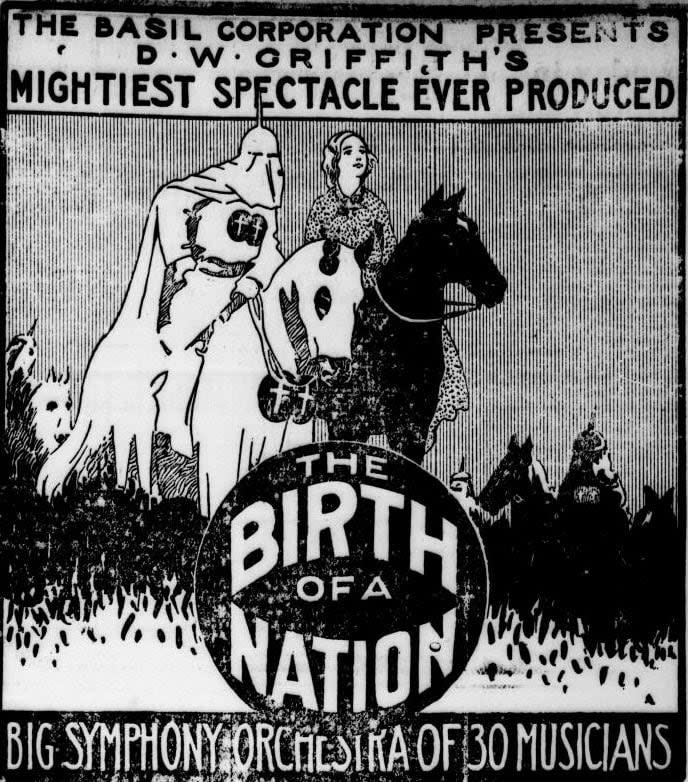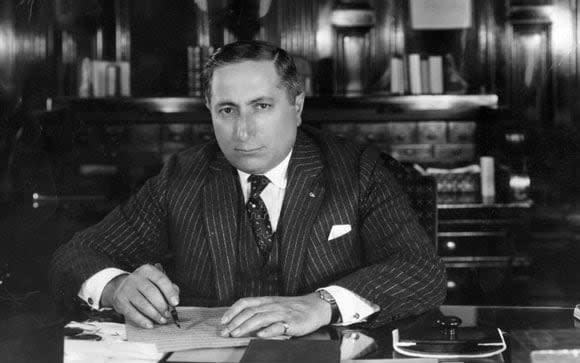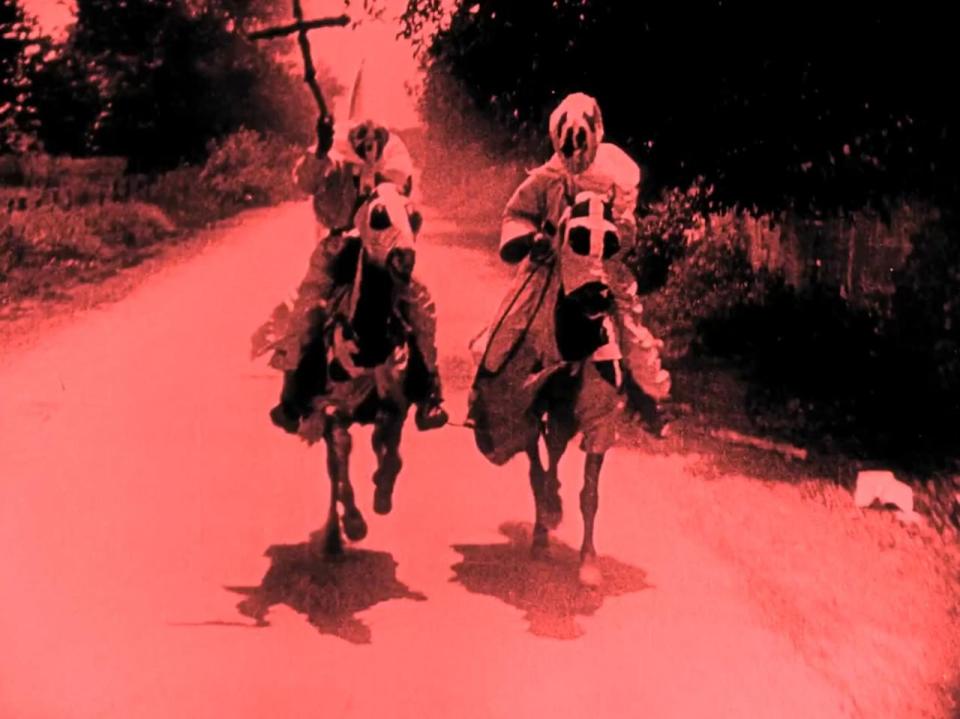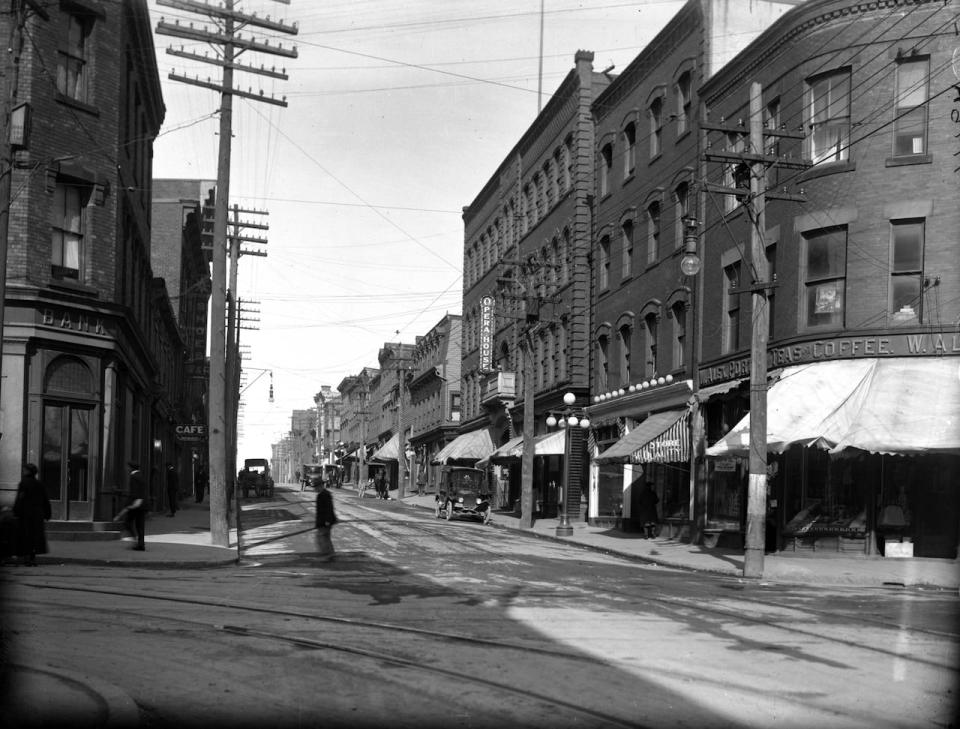'Mightiest spectacle ever produced.' The time N.B. went wild for racist film

A film featuring depictions of blackface and the KKK would have a hard time at modern cinemas.
But it was all the rage when D.W. Griffith's The Birth of a Nation toured more than 100 years ago, and was well-received when it played in New Brunswick.
The 1915 film, which portrays an inaccurate version of the reconstruction period of the American South, was event viewing.
"It would've been different to go see that film, I think for most people … not just in New Brunswick," said Scott Preston, a film professor at the University of New Brunswick.
"It was presented as a special event."

Louis B. Mayer got his first big break in Hollywood by getting the New England exhibition rights for the film. (famousentrepreneurs.com)
Griffith's film was the most ambitious Hollywood film ever produced at that time.
Preston said most films then were around 20 minutes in length, but The Birth of a Nation clocked in at more than three hours.
The film was the first feature to be shown at the White House and became a hit, with distribution rights being quickly snatched up.
In fact, an upstart Saint Johner named Louis B. Mayer, of Metro-Goldwyn-Mayer fame, bought the New England film rights, starting his Hollywood career.
The Ku Klux Klan are portrayed as heroes, and the film features white actors in blackface portraying racial stereotypes.

The Ku Klux Klan are portrayed as heroes in the film. (Internet Archive)
Preston said it was quite common in entertainment at that time.
"People were happy to go to vaudeville shows and watch performers perform in blackface," said Preston.
The film toured across North America in a roadshow format and premiered in Moncton at the Grand Opera House on March 27, 1916.
Local papers said the film was the "mightiest spectacle ever produced," and early reviews of the film in Moncton were overwhelmingly positive.

An advertisement for a 1917 screening of the film in Saint John. (Saint John Standard)
"The picture is wonderful and is incomparable with anything in the moving picture line that has ever been shown in Canada," said Moncton's Daily Times.
But from the start, there were people opposed to screening the film.
The screening in Moncton attracted members of Halifax's Black community and Nova Scotia's film censor A.E. Wall.

The film would play at The Opera House in Saint John, located on Union Street. (Provincial Archives of New Brunswick Item - 1906 P210\962)
According to the Halifax Recorder, the province's Academy of Music decided not to show the film "in the interest of good feeling in the community."
When the film travelled to Saint John, the Daily Telegraph newspaper reported advanced ticket sales were the largest in the Opera House's history.
That didn't sit well with the city's Black and faith communities.
The city's Evangelical Alliance sent a representative to a censors meeting to try to ban the film.
"The Birth of a Nation is calculated to incite race prejudice," said a motion at an alliance meeting, according to Saint John's Daily Telegraph.

Tara Taylor, a filmmaker based in Halifax, said any techniques the film pioneered are dwarfed by the fact that Black filmmakers in that era weren’t given the same resources as white filmmakers. (CBC)
Provincial censors reviewed the film, which was passed uncut with censors noting, according to the Saint John Standard, that there "was nothing objectionable in the picture."
Re-evaluating the film
The film continues to have a complicated history over a century later.
In 2013, New Yorker film critic Richard Brody wrote "the worst thing about 'Birth of a Nation' is how good it is."
The film is often compared to the films of Leni Riefenstahl, which were technically brilliant, but were little more than propaganda for Adolf Hitler's Third Reich.
But Tara Taylor, a filmmaker based in Halifax, said any techniques the film pioneered are dwarfed by the fact that Black filmmakers in that era weren't given the same resources as white filmmakers.
"We didn't have resources to be able to learn that," said Taylor.
"I don't want anybody to pat themselves on the back for any kind of technological advancements or anything because they weren't sharing that knowledge with anybody but themselves."

Obediya W. Jones-Darrell (Vince Robinson/ Submitted by Obediya W. Jones-Darrell)
Obediya Jones-Darrell, a filmmaker from Nova Scotia who splits his time between the United States and Canada, said the film "belittles the humanity of everybody who is watching the film."
"This film and other films that are done with the blackface and everything by belittling the characters that … are the main focus of the story, it just does a disservice to everyone," said Jones-Darrell.
He said even focusing on the technological prowess of the film takes away from the voices of people at the time who were against the film.
"There is a lot of people at that time that may have felt that this film is terrible, but the only voices that we're hearing are that this film is technologically great," said Jones-Darrell.
Taylor, who described herself as "very frank," did not disappoint when asked how the film should be consumed now.
"Trash the sh-t out of it and then turn it into a footnote," she said.

(CBC)


